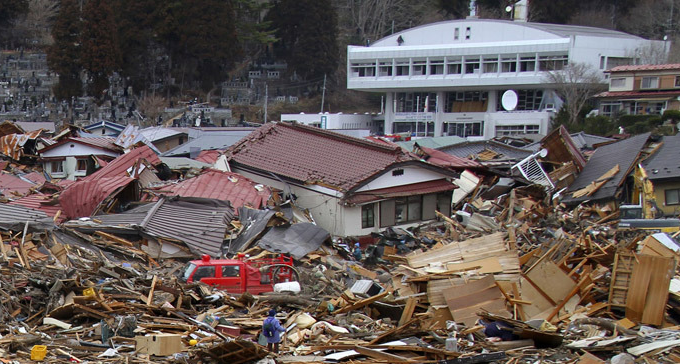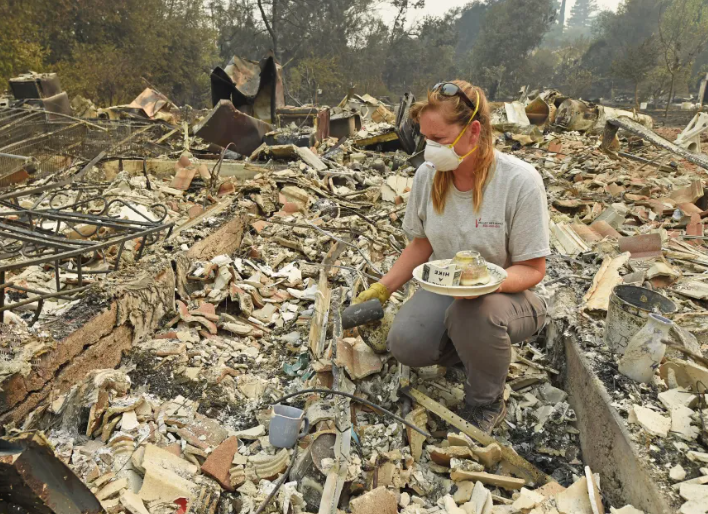Imagine an earthquake hitting a city. The city was beautiful and functional before, now it is mostly rubble. There may be areas that are unaffected, but it’s largely changed forever, it will never be exactly the same.
Trauma has a shattering effect, it can break you. It can break what you know. It can break what you had before, the world as you knew it. But it doesn’t mean that you can’t rebuild.


The benefit of rebuilding is that now you can build something sturdier and better than before.
According to Crittenden there is a lot of work to be done in extracting learning information from the trauma. Do you think you’ve resolved your trauma? If you have, can you answer the following questions:
- Have you extracted predictive and protective information from past danger
- Can you apply this to future scenarios to help predict future danger
- Have you developed preventive strategies in the event of danger
- Can you parse out information about the past danger that is not relevant to future safety
- Can you develop strategies to protect self in the future
- Can you accept and accommodate to changes in self and others due to past danger
- Can you transform intense negative feelings around complex emotional states and increase contentment with what remains
- Can you accept that there is ambiguity and uncertainty inherent in life
- Can you find some redeeming or satisfying outcomes that resulted out of what happened
That is a lot of questions, and that is a lot of work. It’s a little like a house that has burned down, and you have gone back once it’s no longer hot, and worked through all the debris, you’ve sorted what can’t be recovered from what can. You’ve sat and grieved in the ashes, recovered memories that were dear, and even started to dream about rebuilding, and what might be similar and what you might change.

Think of dissociation on a continuum. Suppression can be a wonderful thing. It can provide us with immediate relief! The downside to suppression is that it requires sustained effort to maintain and will get in the way of mastery and understanding needed to achieve closure. Imagine the effort that it takes to keep a large beach ball, under the water! Can it be done? For sure. Does it require effort, yes it does. Will it impact the rest of your system, yes it will.
That’s why in the world of emotional health, we believe that the best way to deal with painful memories is to acknowledge them and to understand them. To look through the rubble, and to clear out what needs to go, and to hold on to what needs to stay. Or organize it and build it back into place you can live and function in.

Trauma can remain unresolved. If it does, it could remain with you in these ways:
- threatening information pervades mental processes, information is split, distorted, manipulated.
- there is a preoccupation with the trauma or a refusal to acknowledge it. Preoccupation with trauma means that too much is taken forward. Everything in life is seen through the lens of the trauma. There is intense affective arousal and cognitive confusion.
I think of a time that a dear friend had died, and someone had asked me about my friend. I was happy for the opportunity to remember him and his influence on my life. But in the moment that I started to speak of him, I forgot where I was, I talked for a long time, and it was as if I was back reliving some moments with him. I because emotional, and later felt that I had overshared. This is just a small example of how the trauma can influence us if we haven’t processed it. In more extreme cases, it can lead to temporal confusion, confusion of person, erroneous placement of the self at the event, confusion around the causes or implications, overly simplified emotional responses, simplified reasoning about responsibility for the causes, irrational belief in the high probability of repetition of the event and hypervigilance.
- there is dismissing trauma which means that we leave too much in the past. This can sound like someone being dry and unresponsive, dismissing the importance of the event, and leading to consequences in limiting feelings.
We could go as far as to omit the dangerous event, speak with extreme brevity about danger, have an absence of affect, make overt claims that the event had no importance to the self, believe that the self caused it or place the self as distant from the event.
Another very common response to unresolved trauma is called dissociation. When trauma produces dissociation, what do we do with this?
